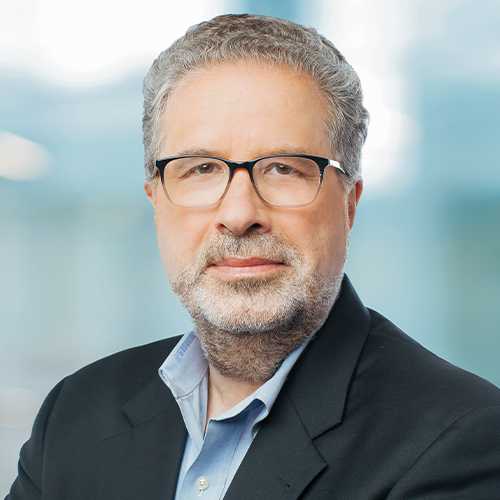Emilio Emini
PHD, FCPP
Chief Executive Officer, Bill & Melinda Gates Medical Research Institute
Fellow Since 2015


Published March 2022
Congratulations again on your appointment to the Gates Medical Research Institute as CEO last year! You previously held a Director role in the TB and HIV Program at the Gates Foundation for over six years. Could you tell us about your path to the Gates Foundation? How has your day-to-day changed since joining the Medical Research Institute?
I joined the Gates Foundation in 2015, initially as the Director of the Global HIV Program and subsequently as Director of the joint TB and HIV Programs. My move to the Foundation followed a 30-year career in the biopharmaceutical industry in which I worked on programs ranging from the development of antiviral combination therapies for HIV to several registered vaccines, including the conjugated pneumococcal polysaccharide vaccine.
While these interventions had a documented medical impact, the impact was inevitably initially limited to high-income geographies with a frustratingly slow expansion to populations living in lower income countries. I joined the Foundation given its dedication to an inclusive global health approach and as a personal opportunity to learn about and address global health challenges. My recent move to the CEO role at the Gates Medical Research Institute reflects a logical next step that allows me to use both my pharmaceutical development experience and an evolving appreciation of global health challenges.
A critical challenge is the lack of needed investment and interest by high-income countries in developing pharmaceutical interventions for diseases that primarily afflict lower income geographies. The Institute was founded by the Foundation several years ago to fill this gap. The Institute is a not-for-profit pharmaceutical development and medical research organization focused on global health challenges such as TB, malaria, enteric infections, and infant malnutrition. In the end, my personal focus remained the same as I moved from the Foundation to the Institute, but perhaps, better reflecting my overall experience.
What first interested you about becoming a Fellow of The College of Physicians of Philadelphia?
I knew of the College and its educational work well before I was nominated to Fellowship. This was partly because of my long-standing affiliation with the Philadelphia area and also because of the Foundation’s earlier support of the College’s History of Vaccines project. But, of greater attraction, was my view of the College’s potential as an organization that can expand its educational mission to enhance knowledge about the importance of global public health. Particularly with regard to infectious diseases, parochial approaches are inadequate, and a global perspective is essential. We are learning this again as the world struggles with COVID-19. The College can play a positive role in taking the lessons of the past to prepare the world for the future. Of note, I was particularly attracted by the College’s dedication to address issues of educational and health disparities in our local communities. The concept of “global” health starts with a local perspective as many of the challenges are the same.
In 2019 you spoke at the College about the global HIV and TB epidemics in a lecture entitled Controlling the Global HIV and TB Epidemics: The Challenges, The Opportunities, and the Consequences of Failure. I still remember that lecture as incredibly eye-opening and was wondering what it was like to speak to such a mixed audience of Museum fans, College Fellows, and medical students? Are there any events that you’ve attended at the College that have been especially memorable for you?
I always enjoy speaking to audiences that have diverse backgrounds. Very similar to the College’s lecture audience, I routinely teach sessions in courses that range in focus from the science of vaccine research and development to the economics of the biopharmaceutical industry, to government global health policy. Similarly, the overall experience of attending diverse College lectures and events, ranging from the history of medicine in Philadelphia to the history of medicinal plants, is always an enjoyable experience.
We recently asked a number of Fellows in our FY21 Annual Report what they have found to be helpful in terms of self-care over the past year. With such a high-profile position, do you mind sharing any tips or suggestions that have been helpful for your mental health?
I have little to add beyond the admonition that one’s work should be balanced by the need for one’s social interactions with other people. The latter is particularly important. Of course, in the course of a day, it is often difficult to discern the impact that one’s work has on others. It is good to stop every now and then, and to look back. Seeing where we have come from should inspire us to keep going.
What do you see as some of the most pressing priorities for the College in the coming year?
The College has incredible potential to become a (even more) recognized educational institution focused on the improvement of “global” health, not only from the medical/scientific perspective, but also in related and integrated areas such as economics and policy. This should be an international aspiration and expanding the College’s membership and physical footprint to allow it to play this role is important. In addition, the College should continue and evolve its local activities among our underserved communities. The international and local aspirations are necessarily linked and integrated.
Tell us about one of your favorite items in the Library or Museum, or your favorite aspect of the College.
Among the many fascinating objects at the College, my favorite is by far the historical and original books in the . Reading, and even being close to these works, allows one to almost feel being in the presence of the author. The inspiration is evident.